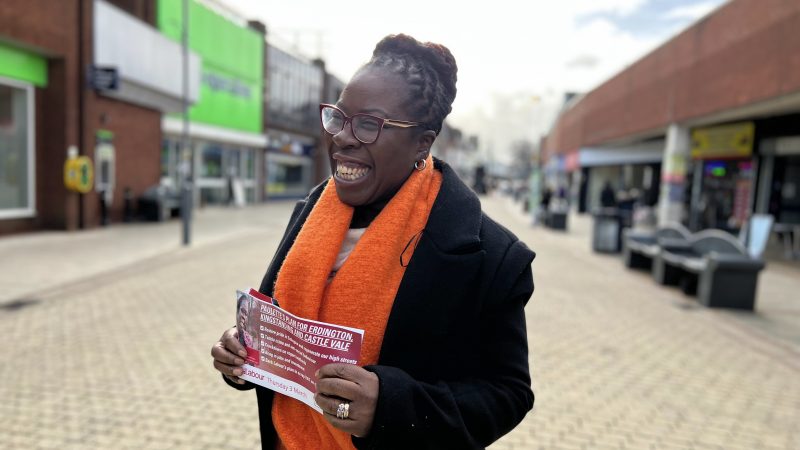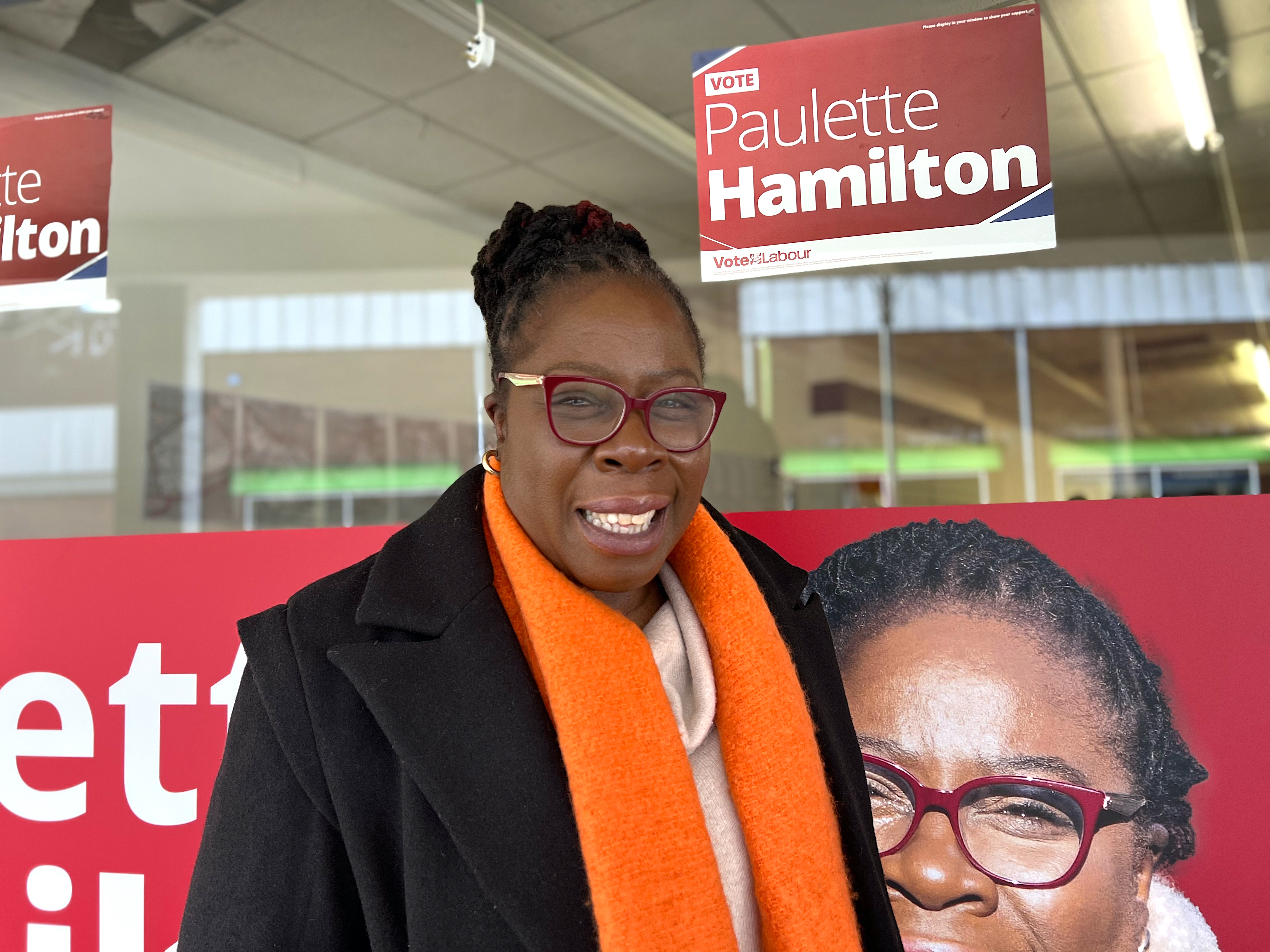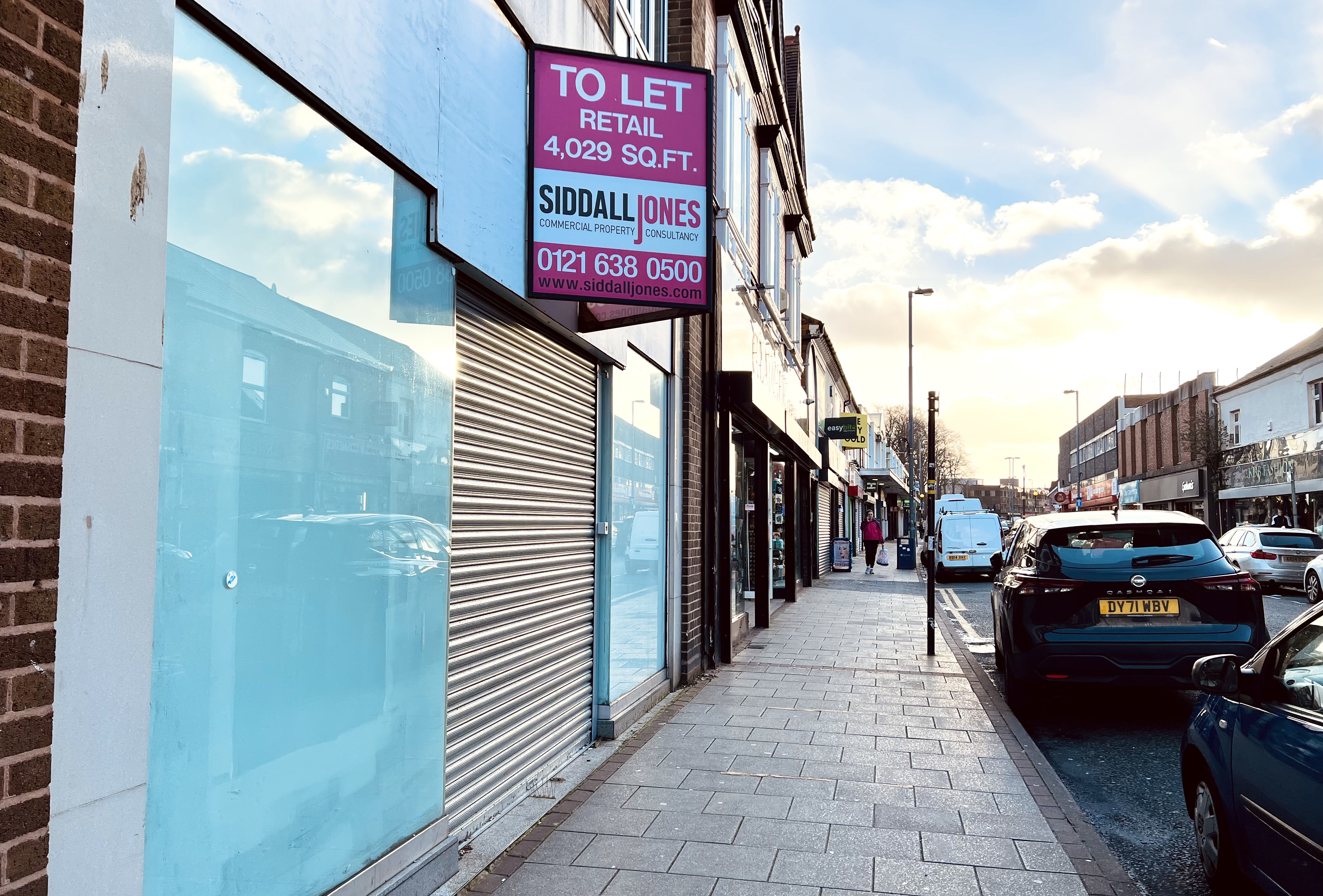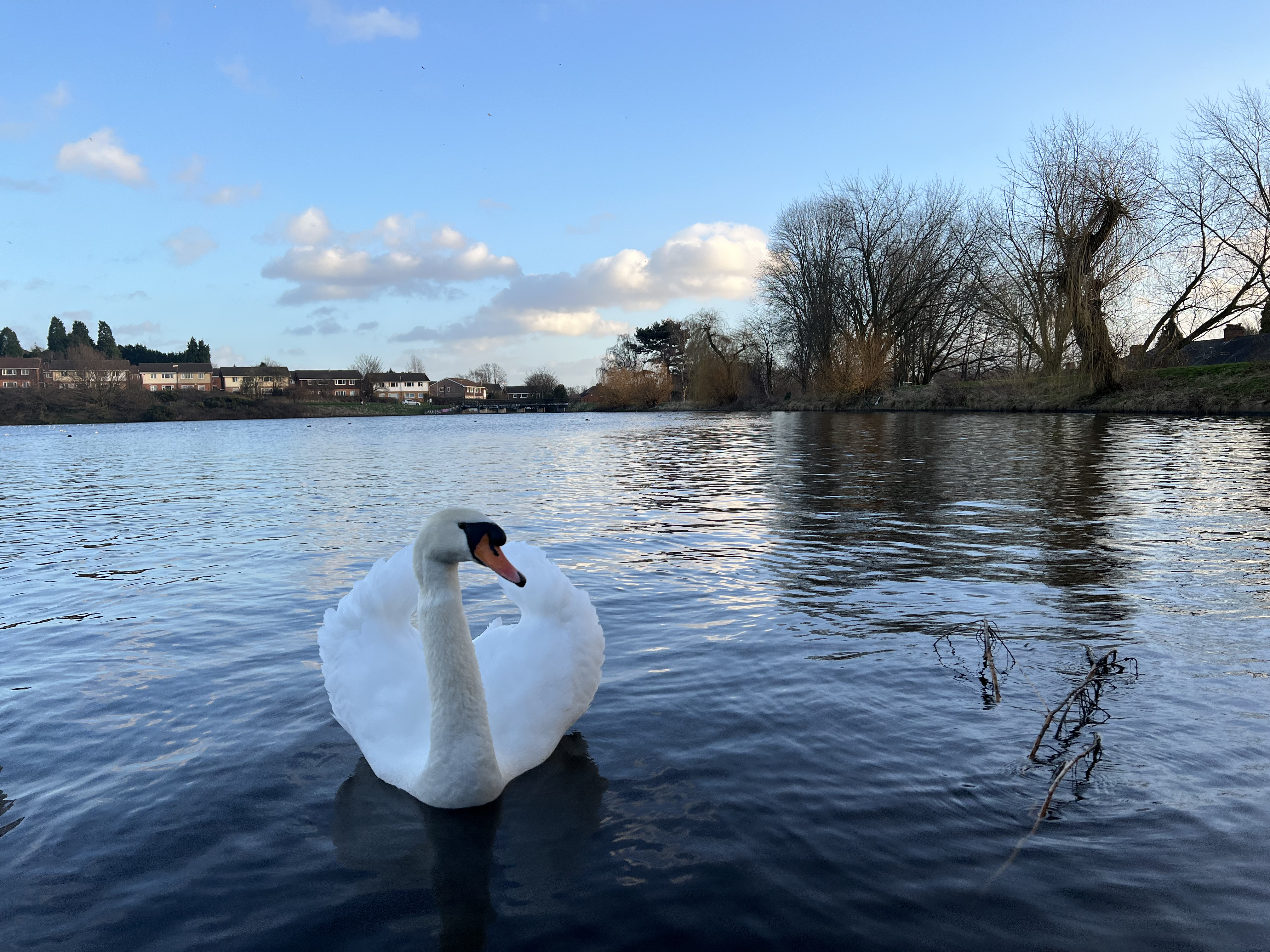
Tears roll down Paulette Hamilton’s cheeks. In a bright, spacious cafe opposite her campaign office during the Erdington by-election campaign, I’ve asked her what becoming Birmingham’s first Black MP would mean to her and the people who live here. “Can I say to you? That question is quite deep, because I didn’t plan to become an MP,” she replies. “My dad was a factory worker. He died the Saturday after I was selected to become an MP. And it’s something that is bittersweet, because for the first few weeks I could not understand why my dad was not here. But it means a lot. It means a lot.” This is when the Labour candidate starts crying, and we pause the interview to sip on our coffees.
Hamilton was selected as Labour’s candidate for Birmingham Erdington on January 26th, following the sad death of Jack Dromey. The by-election is a unique opportunity: the stars don’t often align to allow politicians to stand specifically in their home constituencies, and she has lived within the boundaries of this parliamentary seat for 35 years. But it has been a difficult time for local Labour representatives, who first dealt with the unexpected death of councillor Penny Holbrook, aged 43, in November, whose work on the local Brookvale Park is praised by Hamilton; then with the equally sudden passing of Dromey, a well-liked MP who was passionate about the area. Hamilton has also had to contend with the death of her father, one week into her campaign.
His influence crops up quickly as I begin my chat with Labour’s Erdington candidate by exploring her journey into politics. “We’re from a working-class family and my dad was involved with the Labour Party. There was no other party I was going to be part of,” she explains. Then she became a nurse – “I constantly got into trouble because I was always trying to speak up for other people” – and joined the Royal College of Nursing. Later, she stood for Birmingham City Council, where she has been for 18 years, including for the last seven as the cabinet member for health and social care.
Keir Starmer, who visited Erdington as part of his three-day “security, prosperity, respect” tour last week, often talks of his toolmaker father working in a factory as part of his political story. Hamilton has this in common with the Labour leader. “When Keir said about his father being a factory worker, of course, it brought back the relationship to the fact that my father worked in a factory for many years doing night work. And at one point, he didn’t even used to have his holiday, because he’d work through the holidays for that little extra money so we could survive. So it wasn’t easy,” she says.
The Labour councillor rejoined the NHS frontline last year. “I loved nursing when I did it. But I have got a big mouth,” she tells me. “But when that cry came for nurses to go back on the frontline for the vaccination rollout, I didn’t hesitate. So I went back, got my number and started working as a nurse. I thoroughly enjoyed it. It was very humbling. I love working, the camaraderie with other nurses.”

She wanted to join the vaccine effort partly because “I felt that my community and other ethnic minority communities were struggling with it”. The work was particularly satisfying when she could “iron out” myths around the jab before giving it to people. “I was able to understand some of the issues and the difficulties that they faced, why they didn’t want the vaccine and what made them change their minds.” But that isn’t all Hamilton learnt: she is candid about how hard she found the work. “Standing for 12 hours at a time giving vaccines is not easy. And I struggled with that, to be honest. I couldn’t do a full 12-, 13-hour shift to actually give vaccines, so I only worked for five, six hours at a time.”
This champion of the Covid vaccine was nonetheless pleased when the government U-turned on its mandatory double-jabbing policy for NHS workers. “I knew that if we did in the health service what had happened in the care service, we would buckle,” she says, referring to how the rule was enforced for all care workers in November. “We needed to find another way where we could work with our health workers without threatening them with losing their jobs. Because in the long term, it would solve nothing.” This was the line taken by the labour movement, including UNISON – though Hamilton hasn’t always seen eye to eye with the public sector union.
Birmingham care workers in UNISON took strike action in 2018 when the council unveiled plans to cut their hours, with some going from 37 to just 14 a week, potentially forcing them into poverty. The dispute was resolved the following year when the new rota was dropped. Hamilton was also involved in another dispute with Unite and UNISON refuse workers in 2019. In this by-election, she is being challenged from the left by TUSC candidate Dave Nellist, a former Labour MP who was expelled over his support for Militant.
How does she respond to that challenge? “I’ve had that portfolio for over seven years – they can only name two disputes. I have managed a budget of over £354m. I have also managed the public health budget each year of over £100m. And they have highlighted two disputes that happened over five years ago, when we were looking at how we could upgrade a service. We had cross-party agreement when it was all decided,” Hamilton replies.

As for the fight on her right, against Robert Alden who has been the Tory candidate here since 2010, Hamilton can name lots of clear dividing lines. Above all: the cost of living and Rishi Sunak’s £200 energy loan. “Many of my elderly people in this constituency, they don’t like debt. So that’s worrying them before it even happens.” Then there is the state of Erdington’s high street, characterised by shuttered shops. “I saw that high street when it was in its heyday,” Hamilton says. “I’ve seen it gone from the hub of the community to an area where many people say they won’t go anymore. For me, the Conservative government has let us down in Erdington.”
Erdington is a low turnout constituency: although Dromey won in 2019 with a 50% share, leaving the Tories behind on 40%, there were just 3,601 votes between them. The seat also voted by 63% to leave the EU. While Hamilton says “there are pressing issues in this constituency but Brexit is not one of them”, you might have thought Tory ministers would have spotted an opportunity to ‘level up’ this seat. But, as Labour has repeatedly highlighted here, two bids for local funding have been rejected.
Asked about her priorities if elected, Hamilton points to housing (“it’s no good us allowing landlords to fill an area with exempt accommodation with no proper legislation”), to crime and anti-social behaviour, to small businesses, and to health and social care. She hints that any frontbench or committee work in London would be around that last topic, “my passion”, but that will come later. For now, she says: “I can’t progress with some of the local issues if I’m constantly in Westminster, ignoring what local people are saying – and I do plan to be an MP for local people.”

The weather is terrible on the day of my visit. As canvassers battle against the fierce winds, Jo Stevens, the Shadow Welsh Secretary, is handing out Mini Eggs and putting upright bins that have been blown down. I am somewhat surprised to find a positive response for Labour on the doorstep in a ward, Kingstanding, that elects Tory councillors including Birmingham MP Gary Sambrook.
Complaints of anti-social behaviour are raised by more than one voter I speak to; later that afternoon, I find myself between an angry couple in the middle of a screaming row on the high street. It reminds me of home, Kilburn High Road. There are beautiful parts to the constituency, too: Hamilton recommends Witton Lakes, where I make a stop, to be greeted by a picturesque scene with majestic swans. But Erdington high street’s need for some tender loving care is clear.
Getting the Labour vote out on polling day is crucial, as ever. “We need to win this seat and we need to win it well,” the candidate says. As we leave the cafe after our interview, the beaming Paulette Hamilton takes her time, speaking to every constituent in sight – always the sign of a good candidate.
westmidlandslabour.org.uk/polling-day-in-birmingham-erdington




More from LabourList
‘Labour is being badly misled on housing’
Reeves bets on patience over populism
‘Energy efficiency changes must work for older private renters’